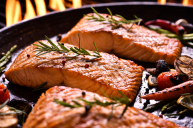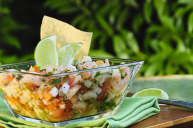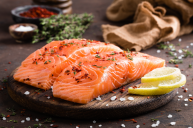Spoiled food is a cook's worst nightmare. But how can you tell whether or not certain foods have gone bad? Fish, in particular, makes it pretty obvious when it's no longer good to cook, and there are, specifically, ways to tell if salmon is bad before you attempt to cook it.
Does the Salmon Smell?
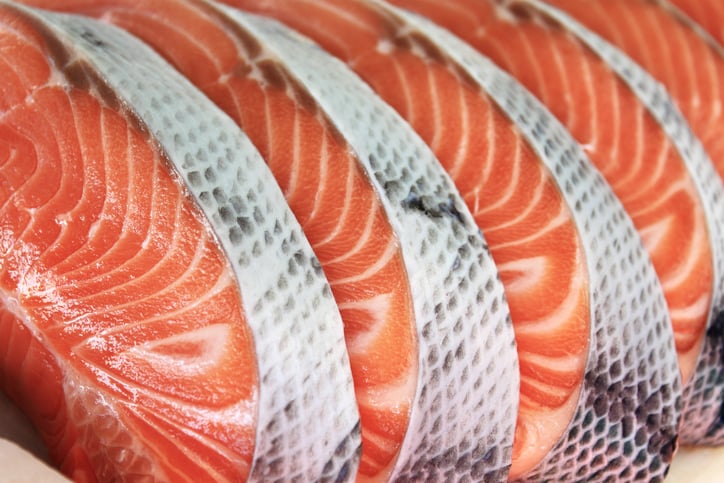
Getty Images
If your raw salmon has a strong smell, it's probably gone bad. The fishy smell will be pretty obvious, and bad salmon smells rather ammonia-like if it's not a good idea to cook it. Fresh salmon won't have such a strong smell and instead has more of a mild scent, so this is a good first sign of spoilage.
Does the Salmon Look Dull?
A spoiled salmon fillet looks dull and has a gray tint to it compared to the bright pink of good salmon. Bad fish could also have dark spots, mold, or discoloration. Plus, bad salmon sometimes has a milky, slimy residue on it, which is a pretty clear indication you should not cook and consume it. Good, high-quality fresh fish should be shiny.
In addition, if you bought your fresh or frozen salmon as a whole fish, take a look at the eyes. Healthy salmon should have bright eyes and should be white with a dark pupil. They should also bulge outward, so if your salmon's eyes look like they've sunk in or seem filmier, the salmon has gone bad. These visual signs should help you determine if you've got safe salmon to cook or should dump it before it's too late.
How is the Texture and Consistency of the Salmon?
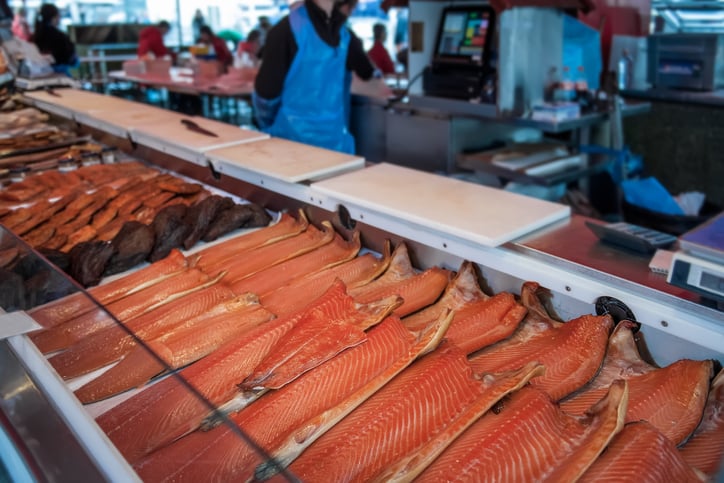
Getty Images
Safe salmon will have a good consistency, so touching it will help you to figure out how to tell if salmon is bad. If you press gently on the salmon and it feels like it's going to easily break under your fingers, or if it seems slimy and sticky, or if its skin keeps having a dimple after you pull your hand away, it's probably no good.
If, after all of that, your salmon seems OK to cook, go to town. Keep in mind that cooked salmon has a shelf life, however, and you shouldn't wait too long to eat it. When storing leftover salmon, use an airtight container, and keep it in the fridge rather than at room temperature. (Food poisoning is no joke!)
When in doubt, check the expiration date on your store salmon or ask the fishmonger you bought your fresh salmon from for assistance.

